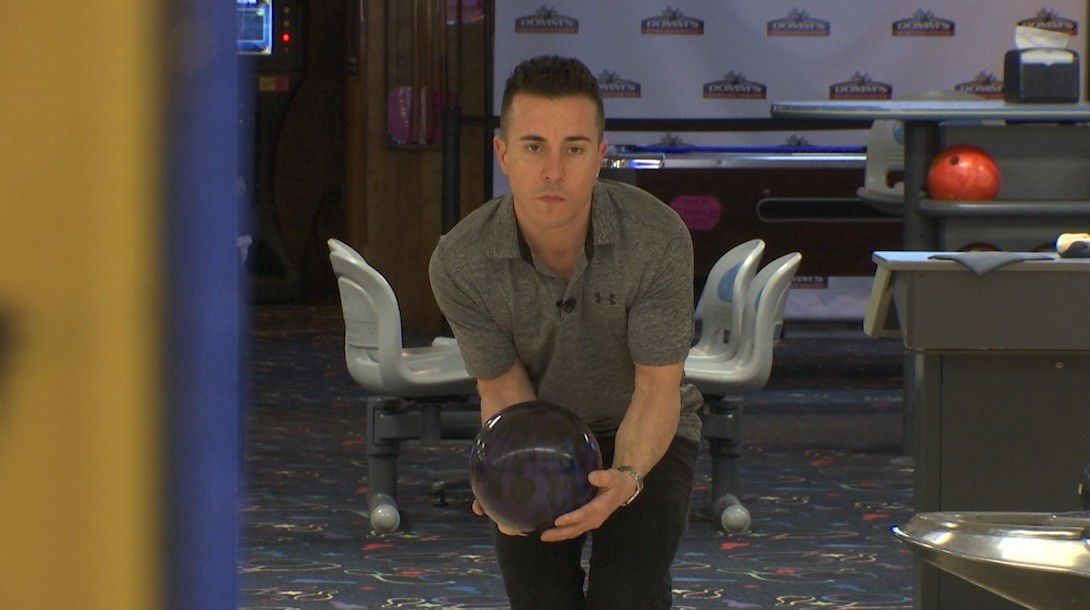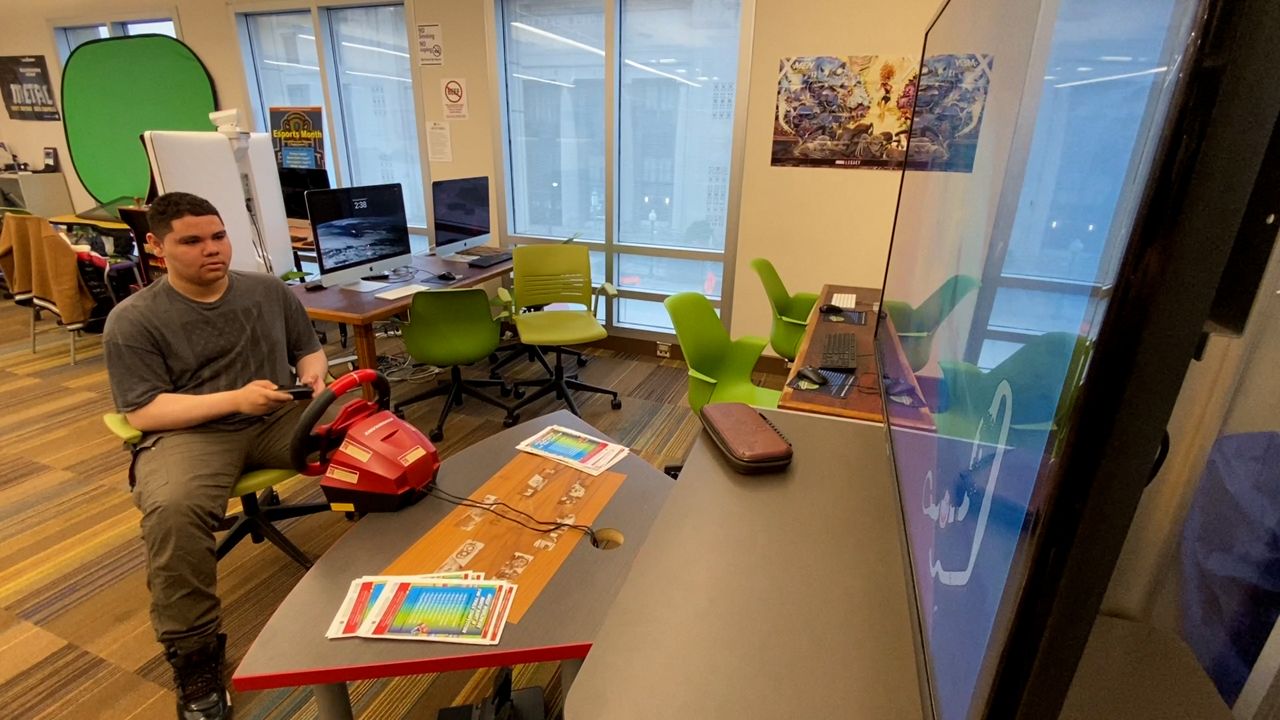ROCHESTER, N.Y. — The hunt for homeware continues after years of a worker shortage affecting families since the pandemic. Many have grown to rely on the Consumer Directed Personalized Assistance Program (CDPAP) to survive their day to days.
CDPAP is a medicare program that provides essential, personalized care to elderly, sick or disabled New Yorkers in the comfort of their own home.
Heather and her daughter, Devyn, Burroughs have been participating in the program for years.
“I really appreciate this program because we can pick our family and our friends instead of an agency to sending a stranger, who might not understand the way Devin communicates or her special diet to prevent her seizures or all of those things. So this lets us personalize it because people are in our homes,” Heather explained.
Her daughter was born with a rare genetic disorder called Argonaute Syndrome that means she was born without the AGO2 chromosome.
“There’s like 50 people in the entire world that have been diagnosed with it. So, I mean, we say really rare, it’s really rare,” she explained. “She can ay college level ideas, spelling, but you wouldn’t know because when you’re looking at her, she’s chewing on a chewy. She’s watching Curious George. She’s jingling some chains in her hands, and so the motor part often makes it hard for her to Geel where he hands and her feet are. So you’ll see a to of people with her condition, they have something in their hand all the time just so they can tell where their hands are.”
Devyn has delayed motor skills, difficulty speaking and silent and scary seizures that require medication to care for.
“She’s very sensory, very sensitive to lights and things like that and temperature, but her seizures are the scary thing. Most people think of seizures like you’re thrashing around, but she freezes and stops breathing and she turns blue and it just happened, and it’s silent,” her mom explained. “Because her needs are full time, 24/7, I wouldn’t be able to sleep. I wouldn’t be able to take a shower. I would miss all the things that are important because I’d be with Devin and Devin doesn’t always like to go to the same things that we do.”
Heather is trying to give her 17-year-old an opportunity for independence. The CDPAP has been huge help to them during their development. She’s one of 250,000 New Yorkers using the program.
“She can’t even go to the bathroom by herself. I can’t imagine being 17. So having control over who’s with her is important to her too. She can pick and choose who’s coming to the house and as a young woman who’s developing and maturing, I mean, just think of how embarrassing certain things could be for her,” she said. “If we build up the home supports, at least the families can do it while they can, but I won’t be here forever. We really have to come up with a plan that will work even when I’m not here.”
“Consumer directed personal assistance is a type of home care that allows folks to hire their own workers. In light of the workforce shortages throughout home care, which certainly affects us, but the nature of the program minimizes. And so we we have seen participation grow because agency-based home care can't meet the needs. So we are the only option,” explained Bryan O'Malley, executive director of Consumer Directed Action of New York. “The program provides economic security through a multitude of ways, mainly by making sure that folks are getting home care services they need.”
He’s a part of a coalition advocating for the CDPAP after Gov. Hochul’s proposed changes could alter the way the program functions.
“When this came through, obviously we looked at it and said it's clearly bad for the agencies that the industry doesn't take much to look at. But all of the evidence points to the fact that this is also going to be terrible for the people that use the service and rely on it every day,” O’Malley said.
Hochul’s proposing to shift the program to a single fiscal intermediary to administer the program, rather than the more than 600 local businesses currently. The governor’s office says the Medicare program is expected to exceed $9 billion this year, which is not sustainable for the long term, and this change is in hopes to focus on the quality of service and increase oversight of the program. There is currently no intention of ending or eliminating CDPAP.
“We would see tens of thousands of people drop from coverage. They would either lose their home care workers or fall through the cracks in the transition. We’ve seen this in other states with much, much smaller populations of people using the program,” O’Malley explained.
Heather fears these changes will alter the way her daughter’s caregivers are paid and accommodated, which she said would have a negative effect on her daughter’s care.
“I'm very worried that if their pay gets disrupted, we're going to lose even more caregivers,” Heather explained. “We’re talking about like nearly a million people that we’re trying to switch over to one company. I just can’t imagine any corporation being equipped to do that.”
She recently sent a personal message to Gov. Hochul through a commercial, airing across the state since July, advocating to keep the program how it currently operates.
”My daughter, Devyn, needs full-time home care to survive. Consumer directed home care helps me keep my job and take care of my family. Now Gov. Hochul wants to outsource New York’s Home Care program to an out-of-state cooperation, bankrupt small businesses, and force thousands into nursing homes. Even Devyn,” she said in the commercial. “Gov. Kathy Hochul, this is my daughter’s life on the line. Don’t let big business hijack our home care.”
However, a spokesman from Hochul’s office told Spectrum News 1, “CDPAP is an important program that empowers New Yorkers to choose their own care at home. We’re committed to protecting home care patients, strengthening CDPAP and ensuring the program is sustainable. Our reforms will advance that goal by making sure taxpayer dollars are effectively serving the patients who need them."
The governor’s office says it has yet to choose the Fiscal Intermediary, but plans to make the decision by October 1. Last month, at a news conference, Gov. Hochul told reporters she’s open to more than one F.I. as the state works to meet the upcoming deadline.
“The Devyns of New York are most at risk. Devyn has numerous workers and really relies on every single one of them being able to get to her to provide services when she needs them. Heather relies on those services being delivered so she can not only make sure Devyn is okay, but her other children are receiving the care they need from their mom,” O’Malley explained. “Heather’s got eight workers ... One person falling through the cracks is the difference between Devyn’s entire health care system functioning smoothly and falling apart. That is the difference between success and failure. And there's no middle ground when it comes to home care.”
“I think we deserve the chance to talk to you about it. We deserve to have listening sessions where stakeholders can weigh in and share their concerns. We should know who the Department of Health contact us. We should have a main person that we're who's fielding our concerns, because right now we're all talking to legislators and we're talking to the media, and that message is getting really diluted,” Heather said.
Hochul’s office says that under the state’s upcoming reforms, eligibility will remain the same, participants will not have to re-apply, and CDPAP caregivers pay rates will remain subject to state and federal wage requirements for home care. Other states have made a similar transition, and there is controversy between government and program administration if it was handled efficiently.
“Even though she’s one of the most important people in the world to me, she deserves more than just me. And I will always be here,” Heather said.












